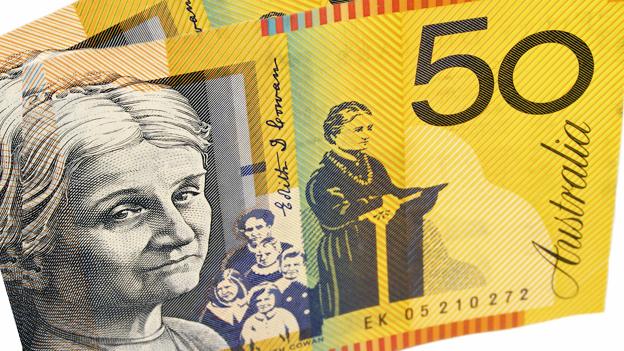Plastic note pioneer Northern Ireland beats Britain by 17 years
- Published
The Northern Bank was the UK's first to issue a polymer fiver in 1999
Northern Ireland beat Britain to a plastic £5 note by 17 years.
The Bank of England is releasing its first £5 polymer note, but the Northern Bank was the first in the UK to issue a polymer fiver back in October 1999.
Two million special edition notes were made to mark the millennium; they featured an illustration of the Space Shuttle on one side.
The bank stopped issuing them in 2008 but, according to a spokesman, they are still "usable and exchangeable".
Internet auction sites are selling the £5 notes for as much as £125 each.
Two versions of the note were issued - the one put into general circulation has an MM serial number and was followed by a collector version with a Y2K prefix.
The Northern Bank took the name of its owner, Danske Bank, in 2012.
But when it issued its polymer note it was owned by the National Australia Group which issued plastic currency in other areas.
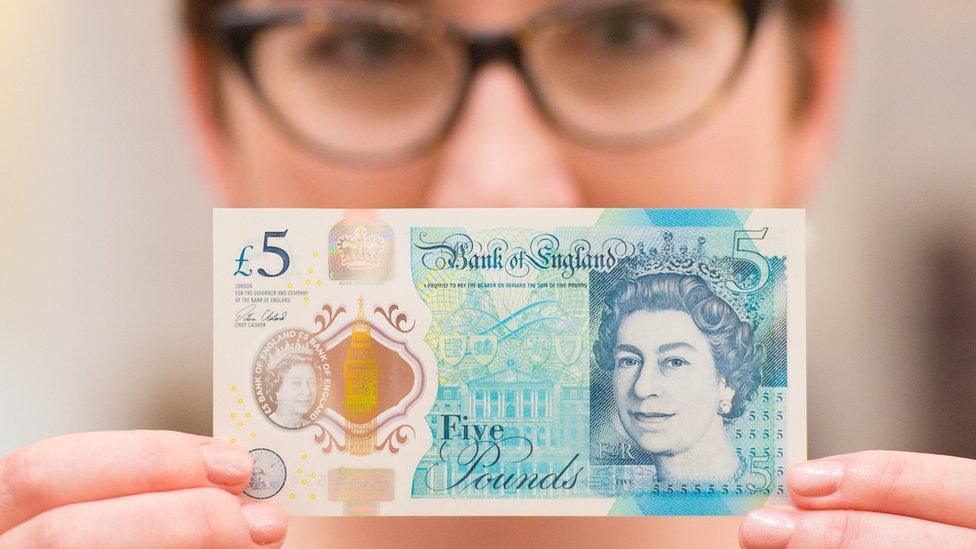
The £5 note, featuring Sir Winston Churchill on the reverse, will be the Bank of England's first plastic banknote
In Northern Ireland legislation exists to allow its local banks to print and manage their own supply of notes.
In 2005, the Northern Bank reprinted all of its bank notes shortly after £26.5m was stolen from its head office by the IRA.
The plastic fiver was the only type of note not replaced.
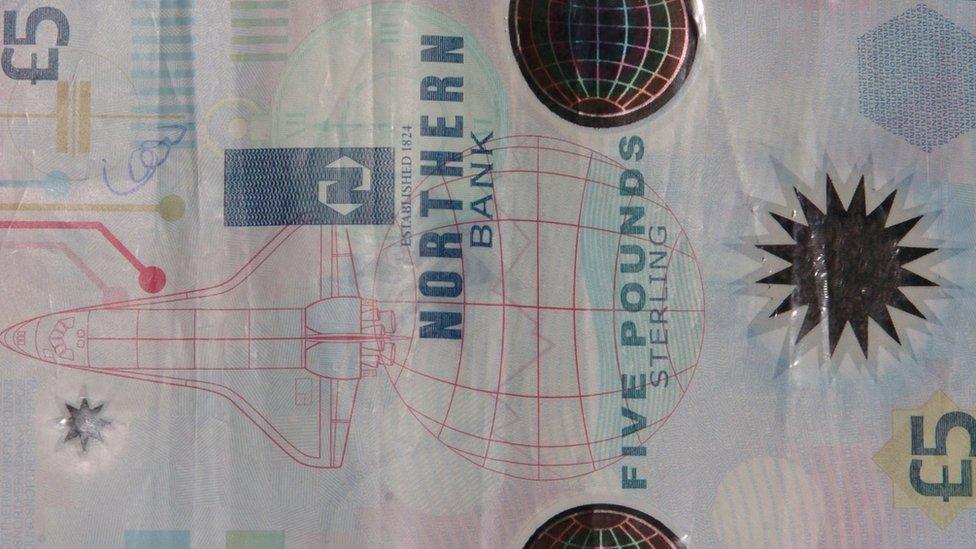
Two million special edition notes were made to mark the Millennium
The new Bank of England fiver will be followed by a £10 polymer note in summer 2017 and the £20 note by 2020.
The paper £5 note will continue to be accepted until its legal tender status is withdrawn in May 2017.
The three Scottish issuing banks are also printing their next £5 and £10 notes on polymer. Clydesdale Bank will issue their polymer £5 on 27 September 2016, Bank of Scotland on 4 October and RBS in November.
- Published13 September 2016
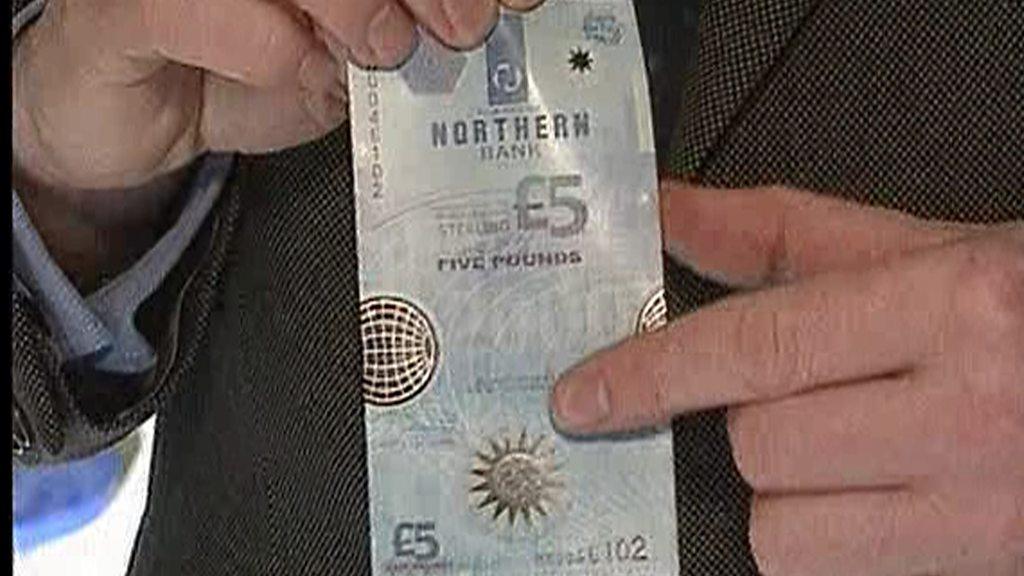
- Published2 June 2016
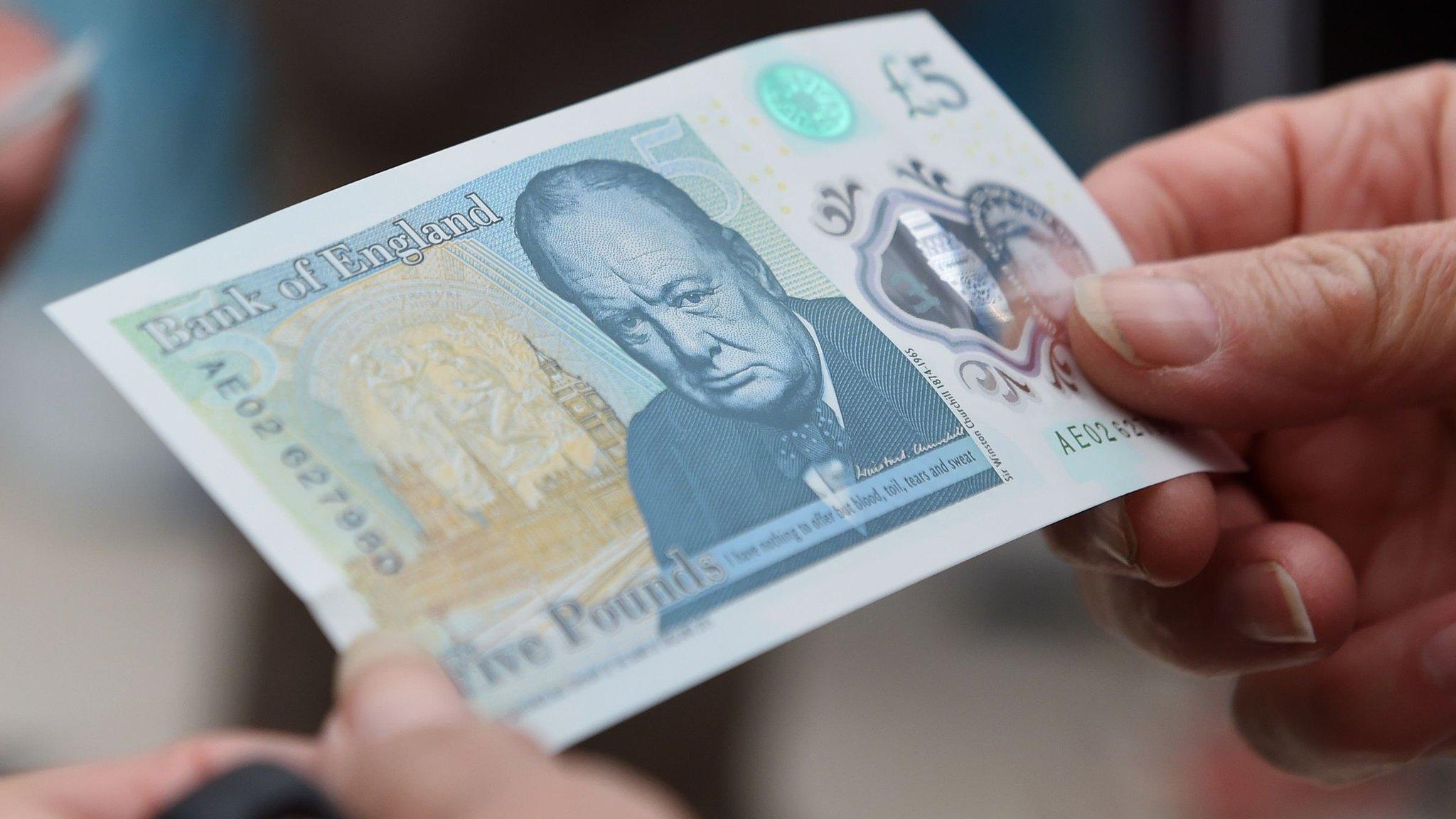
- Published13 April 2015
